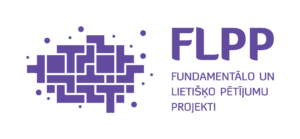Publikācijas
WoS/SCOPUS (Open access)
1. Marc Depaepe (2021). The fragile boundary between ‘education’ and ‘educationalisation’: some personal reflections on the often exaggerated educational aspirations of museums. Historia y Memoria de la Educación 15, 389-419. http://revistas.uned.es/index.php/HMe/issue/view/1520
2. Iveta Ķestere and Reinis Vējiņš (2021). Between “Acts-And-Facts History” and “Edutainment” in the History of Education Study Courses: The Case of University of Latvia. In: Daniela, L. (Ed.) Human, Technologies and Quality of Education. Proceedings of Scientific Papers. Riga: University of Latvia Press, 150–164. https://doi.org/10.22364/htqe.2021.11 9
3. Iveta Kestere, Arnis Strazdins, Inese Rezgorina and Reinis Vejins. Object-based Childhood History from Museums to University: the Latvian Project, submitted Paedagogica Historica.
Other peer reviewed academic publications:
1. Inese Rezgoriņa (2022). Glorification of the Totalitarian Army in Childhood Discourse: An Example of Nazi Occupation in Latvia. In: Proceedings of the 63nd International Scientific Conference of Daugavpils University. Daugavpils. Forthcoming.
2. Iveta Ķestere and Arnis Strazdiņš (2022). Between Nostalgia and Trauma: Representation of Soviet Childhood in the Museums of Latvia. In: Frederik Herman, Sjaak Braster and Maria del Mar del Pozo (Eds.) Exhibiting the Past: Public Histories of Education. Berlin: De Gruyter. Forthcoming.
3. Marc Depaepe (2022). Like a Voice in the Wilderness? Striving for a Responsible Handling of the Educational Heritage’ In: Frederik Herman, Sjaak Braster and Maria del Mar del Pozo (Eds.) Exhibiting the Past: Public Histories of Education. Berlin: De Gruyter. Forthcoming.
4. Marc Depaepe (2022). Über den Bildungswert von Schulmuseen. In: Bildungsmedien im wissenschaftlichen Diskurs. Bad Heilbrunn, Kilinkhardt. Forthcoming.
5. Reinis Vējiņš (2022). Childhood in Children Theaters of Latvia since 1991. Educational Alternatives. ISSN 1314-7277 Forthcoming.
